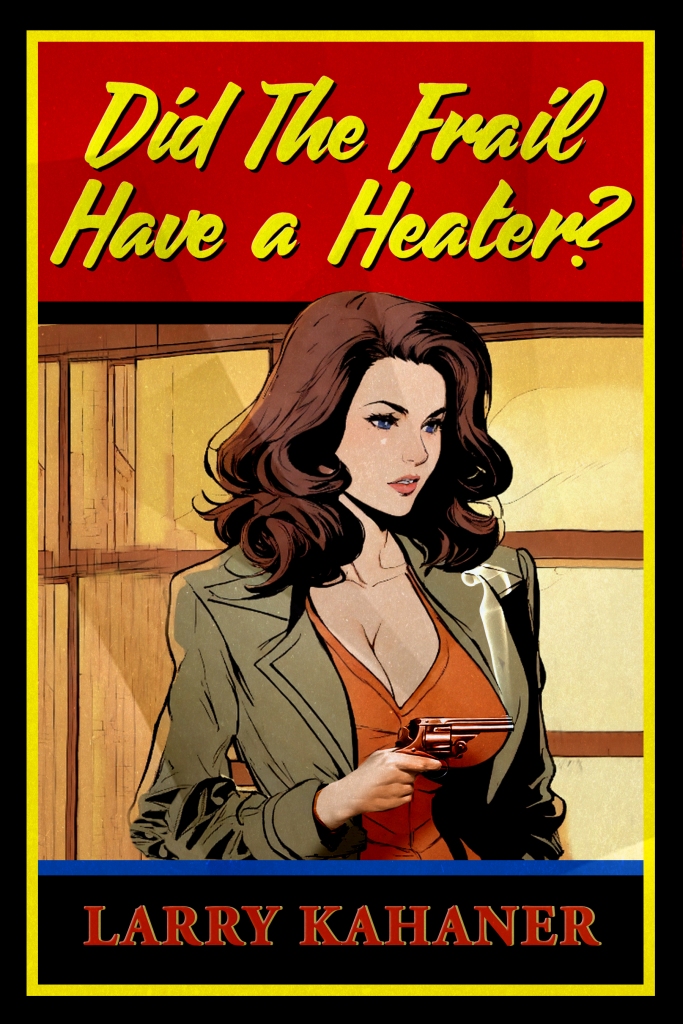My Newest Book: “Did the Frail Have a Heater?”
It’s mysterious, quirky, detectory, funny, and you’ll learn a bunch of phrases you never new existed.
Here’s a free sample. (Give it a second to two to cycle through to the sample. Weird, I know.)
No need for me to read anymore. I’m going to Amazon.
“It’s like Raymond Chandler had lunch with TV satirist John Oliver, and author Terry Pratchett, and they discuss drug trafficking, money laundering, worldwide income disparity and getting hit on the head.”

Sam Marlowe isn’t a happy dick. His noir-obsessed parents combined the names of two literary private eyes – Sam Spade and Philip Marlowe – hoping he’d become a snooper. He did. But they didn’t count on their son getting a bullet to the noggin that injured his brain. Now, he talks in that 1930’s hyperbolic style where guns are gats and women are dames.
It’s funny to us, but not to Sam. He dislikes the way he talks. It scares away dates and confuses clients. Even though he doesn’t think or act like an old-time PI, Sam battles every day not to sound like Humphrey Bogart in The Maltese Falcon.
Despite his quirky and off-putting patter Sam is still a well-respected PI, which attracts Helen Boston to his office. “I caught a whiff of Xanax and chardonnay,” Sam notes, as she tells a bizarre story. He agrees to take her case along with two others at the same time. Why? “Fictional PIs always have multiple cases that come together in the end,” he says, “just like story lines in a Seinfeld episode.” When Helen dies from a drug overdose Sam knows it was murder.
In the end, Sam finds Helen’s killer, solves the other two cases and exposes how drug cartels, Russian oligarchs, crooked politicians and many of the world’s one-percenters hide their cash in a legal, global matrix that some have dubbed Moneystan. (That’s a true thing.)
The only thing the book doesn’t have is a subtitle which should be: “For 99 cents, you can’t go wrong.” FYI, my cut is 34 cents, so clearly, it’s not about the geetus. If it’s the kinda thing you might enjoy, give it a whirl.










